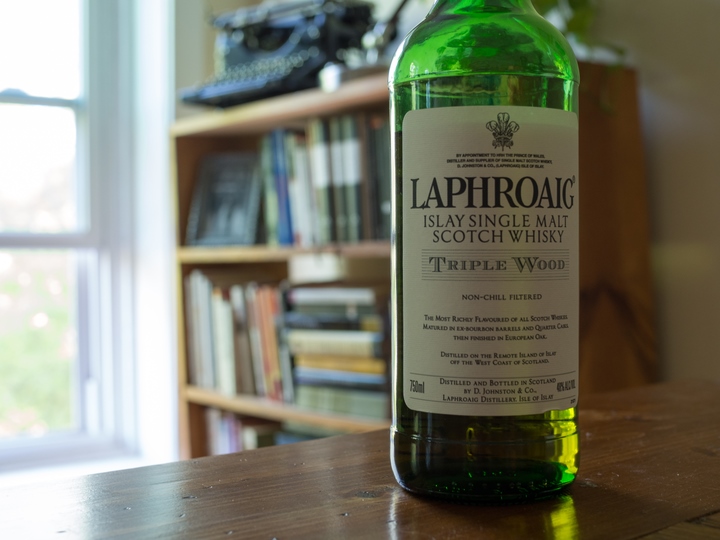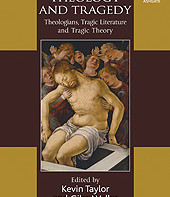In a famous passage from his Philosophical Investigations, Ludwig Wittgenstein explores a limitation of language:
“Describe the aroma of coffee. Why can’t it be done? Do we lack the words? And for what are words lacking? But how do we get the idea that such a description must after all be possible? Have you ever felt the lack of such a description? Have you tried to describe the aroma of coffee and not succeeded?”[1]
This observation raises serious implications for language in general, and theological language in particular. If our vocabulary is inadequate to describe something as pedestrian as the aroma of an Ethiopian pour-over, what does this say about our ability to talk about God, who – as Barth so poignantly describes Him – is wholly other, transcending humanity in infinite qualitative distinction as eternity is qualitatively distinct from time?[2]
Wittgenstein’s comment could be interpreted such that any attempt to talk about God is rendered futile. Going this way, the best our theological language can do is take a right turn down the via negativa and talk about God apophatically. This simply means describing God by negation, by what God is not rather than what God is. Though apophatic theology is useful, this interpretation raises a serious question: does Wittgenstein’s observation compel us to go the way of negative theology?
I don’t think it does. Instead, we can head down an alternative route, one paved by metaphor.
Metaphor is key because, as Janet Martin Soskice argues, its use can “…support the Christian in his seemingly paradoxical conviction that, despite his utter inability to comprehend God, he is justified in speaking of God and that metaphor is the principal means by which he does so.”[3]
Aristotle defines metaphor as name transference: giving the thing a name that belongs to something else (e.g. Jesus is the door (John 10:7)).[4] Metaphor is not merely an ornamental flourish or rhetorical ploy, but undergirds all speech and cognition. Though some think we can get along just fine without it, this is not so. Metaphor pervades our lives such that “our ordinary conceptual system, in terms of which we both think and act, is fundamentally metaphorical in nature.”[5]
We cannot speak, let alone speak about God, without metaphor.
This assertion that all God-talk is metaphorical often raises a red flag. The skeptic may well assert that the Christian must eventually loose the bonds of figurative speech and speak unequivocally about God.[6] Such a notion, however, betrays a misguided expectation of language’s epistemological accuracy. We desire an exactness beyond the possibility of language. To say that language is less accurate than we might desire does not mean it is imprecise, or unreliable, or that talk about God is senseless. On the contrary, Wittgenstein himself observed that words have “rough edges” and even what we consider “literal” language is rarely straightforward.[7] We must understand the end of language – both in terms of its purpose and limitations – resting content with the reliability of metaphor as a vehicle for truth, despite the inevitability of a certain raggedness along the edges of words.[8]
Though Wittgenstein surfaced the problem, his notion of language-games proves helpful in providing a solution. Rather than understanding the function of words as simply naming objects, where every word has a precise meaning correlated with the object for which it stands, Wittgenstein developed the idea of language-games.[9] Speaking a language is part of an activity where words have meaning in context of the different language-games. The multiplicity of language-games includes such things as giving orders, describing an object, reporting an event, speculating about an event, play-acting, solving a problem in practical arithmetic, translating from one language to another, asking, thanking, cursing, and praying.[10]
Each language-game has its own grammar that governs how words are used and their meaning understood. Comprehending language is not so much a matter of memorizing precise definitions as it is the cultivation and application of grammatical dexterity or “practical mastery” within language-games.[11]
Practical mastery is not relegated to isolated silos of language-games. Rather, there is tremendous convergence across language-games.[12] It is the transferability of practical mastery from one language-game to another that suggests that the struggle to describe the aroma of coffee does not prohibit talking about God but may actually aid the theological enterprise.
Oenophiles understand the importance of metaphor in this regard. Cognitive linguists have observed that the ubiquity of figurative language in winespeak suggests that without metaphor, wine would be essentially “undiscussable.”[13]
While some may favor a cup of joe, others a glass of Bordeaux, I prefer a dram of Scotch whisky for developing my practical mastery within language-games for describing the ineffable. My spirit of choice is perhaps the holiest of all spirits, the name itself being a metaphor drawn from the Gaelic uisge beatha (pronounced something like oosh-kah bah) meaning “water of life.”[14]
Cultivating my appreciation for whisky – for smelling, tasting, and describing the color, the nose, the taste, mouthfeel, and finish – is transferable to other language-games like theologizing. As I develop a discriminating palate able to discern whether I smell slow-cooked apricots or taste shoe leather and a hint of boggy saltmarsh, I am developing the practical mastery that aids in my ability as a theologian.[15]
So, what may seem like the inability to describe a fine beverage doesn’t mean we can’t talk about God. Instead, the language-game of describing whisky via metaphor actually enables us to do the talking (and it’s not just because whisky loosens the tongue).
Tasting and talking about what seems ineffable – something like whisky – cultivates the practical mastery of describing the truly ineffable, namely God. This is why introducing neophytes to coffee, wine, whisky or God cannot be done without drinking. People need to connect the metaphors used by “the experts” to the various sensations experienced by our senses. In other words, “they need to taste the metaphors.”[16]
This adds a new dimension to the psalmist’s exhortation to “taste and see that the Lord is good” (34:8). To talk about Him we must first taste and see.
And so, whatever your persuasion – coffee, wine, or whisky – I wish you a hearty Sláinte!
[1] Ludwig Wittgenstein, transl. G. E. M. Anscombe, Philosophical Investigations, Oxford: Blackwell, 2001, §610.
[2] Karl Barth, The Epistle to the Romans, 6th ed, London: Oxford University Press, 1968, 10.
[3] Janet Martin Soskice, Metaphor and Religious Language, x.
[4] Aristotle, Poetics, 1457b 6-9.
[5] George Lackoff and Mark Johnson, Metaphors We Live By, Chicago: Chicago University Press, 1980, 5.
[6] Soskice, x.
[7] Kevin J. Vanhoozer, Is There a Meaning in This Text?, Grand Rapids: Zondervan, 1998, 140.
[8] Dan R. Stiver, The Philosophy of Religious Language, Cambridge: Blackwell, 1996, 65.
[9] Wittgenstein, Philosophical Investigations, §1.
[10] Ibid., §23.
[11] Vanhoozer, 337.
[12] Jerry H. Hill, Wittgenstein and Metaphor, Washington: University Press of America, 1981, 99.
[13] Rosario Caballero and Ernesto Suárez-Toste, “Translating the Senses: Teaching the Metaphors in Winespeak,” in Cognitive Linguistic Approaches to Teaching Vocabulary and Phraseology, New York: Mouton de Gruyter, 2008, 241.
[14] Uisge beatha is the Gaelic equivalent to the Latin aqua vitae. According to Charlie Miller, the Talisker Distillery Manager, by common use over the years (or over a few drams), the phrase uisge beatha dimunized to sound something like oosh-kay which became “whisky.” (https://www.youtube.com/watch?v=1kpoZWU7Sf0)
[15] A good guide to developing a discriminating palate for whisky is, ironically, The Whisky Bible by Jim Murray. Cheers!
[16] Caballero and Suárez-Toste, 252.





